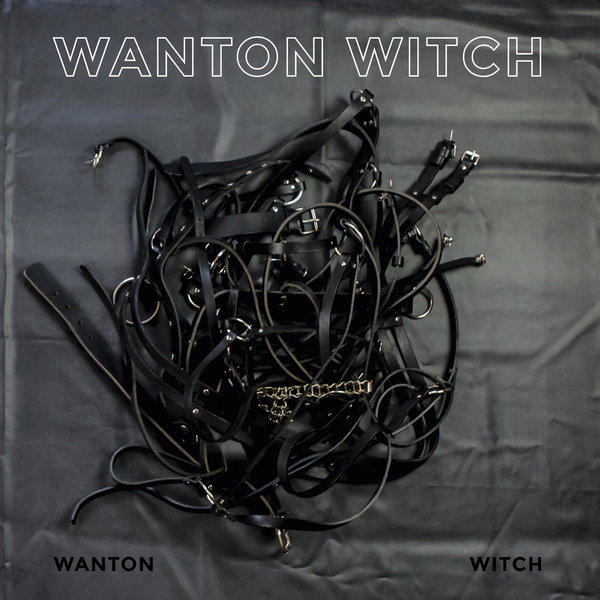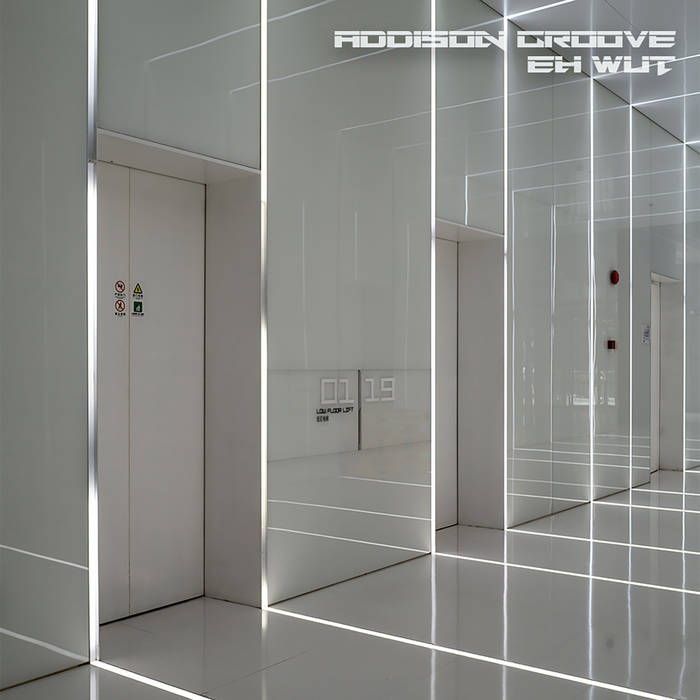Wanton Witch demystifies the other on beguiling debut album
Image: NON NON NON
Electronic music has a long history of being the medium of choice for trans artists. From as far back as 1968 when Wendy Carlos played the works of Bach by way of a Moog synthesiser, there’s been something about the modulation of current into sound that resonates with the complexities of trans identity. Perhaps this is due in part to the subversive potential and distinct futurism of both notions. The trans body is one that is in a constant state of transformation towards a form beyond the binarism imposed upon it, and electronic music is the formulation of melody from the sounds of technology and the transfiguration of organic sound by way of technology. As such there has been a long lineage of trans pioneers within the genre who have recognised and harnessed the subversive potential for electronic music to abstract our reality and subsequently express the trans experience, starting at Carlos and in more recent years including the likes of Arca and SOPHIE. Malaysian born artist and founder of Bangkok’s NON NON NON collective Miriam Alegria, who operates under the moniker Wanton Witch, takes her place in this line of succession with her arresting self-titled debut, released via Stroboscopic Artefacts. In a stunningly layered and discomfortingly dark body of work, the artist plumbs the depths of her lived experience to produce a chaotic and scathingly honest portrait of her state of being.
Foremost a concept album, Wanton Witch is a journal of sorts with each track presenting an intense view into Alegria’s journey and struggles with identity that arise from her isolated upbringing within a small island community. The songs carry anecdotal titles which allude to the experiences that inform them, and provide us with subtle hints of insight into Wanton Witch’s creative and emotional process. This process is manically unfiltered in its approach, a chaotic pastiche of club music’s most unhinged iterations; pounding industrial techno with elements of hardstyle, gabber, dubstep and the unmistakably queer motifs of ballroom music. Chaos becomes the conduit through which Alegria executes an outpouring and detangling of her deeply personal and oft times complex subject matter. Do I Pass? opens with a distorted voice uttering a single word, “identity.” This becomes a statement of intent for a track which launches into a gamut of rapid-fire stabs and distorted percussion before arriving at a gyrating, twisting synth riff that writhes to its end. As a comment on the anxiety that surrounds the pressure to “pass” (to avoid being misgendered by presenting as indistinguishable from a cisgender male or female), it is a poignant lament which manifests the trauma of the experience through sound.
These complexities inform the structure, or lack thereof, of Alegria’s music and results in wildly avant-garde works of sound design formulated to go for the jugular. Each one is more sonic collage than song, aural mood boards of textures and atmospherics which sees Alegria dealing with her experiences in real time. This makes for tracks with remarkable juxtapositions; one moment a thunderous cacophony of industrial noise art and then ominously liminal and sparse the next, such is the case with the exasperated Is This All We Can Do? Unsound Mind places violent, machine-gun synths atop ethereal, floating atmospherics and a soft, loungey breakbeat. The effect of these juxtapositions is alarmingly emotional; it is almost impossible to avoid feeling through Alegria’s compositions, be it riotous angst or jarring discomfort. This is music designed to encapsulate the flavour and sensation of the emotions which inspire it by working in brazen extremes, and this makes for an abrasive and aesthetically audacious body of work that becomes completely immersive, making you feel through brash noise what Alegria is made to feel through her lived experience.
Wanton Witch recalls early Arca both in theory and practice, but her style here is distinct. Through the madness of her abstraction, Alegria still roots most of her compositions in dance music. Even at her most syncopated, there is a sense of her subverting familiar tropes and the structures of dance music forms. Nervous Burial interpolates and distorts the beat of gqom and follows a pattern typical of the style, and beneath the layers of liquid mercury synths on Looping Projection of You is the sledgehammering common time of hard techno. On the other end of the spectrum are tracks like Resentment, a completely hyperactive and saturated overload that may bring about a panic attack and may likely have been formulated to do just that. Wanton Witch’s penultimate entry, The Beautiful Trauma of Being, is arguably the album’s thesis statement. The track storms through about seven genres while clocking in at under six minutes, moving from (to name a few) avant-garde electronica, breakbeat garage and hard techno before arriving at bass-heavy house. Each phrase unfolds like a chapter within a narrative that encapsulates the tumultuous and confusing experience of queer otherness, and our own confused experience of the music elicits a sense of empathy for Alegria’s feelings.
At its core, it would seem Wanton Witch’s modus operandi is to allow for an understanding of the trans experience by way of empathy. This makes for a record wrought with vulnerability and heartfelt honesty to the point that Alegria’s compositions become alarmingly accessible. It arrives as another sublime body of work that utilises and subverts the conventions of electronic music to humanise the experience of being other, and as a debut positions Wanton Witch as an artist destined to ascend into the ranks of the queer sonic visionaries that have come before her.
Download Wanton Witch here and see the music video for opening track Daddy’s Girl below.
Follow Wanton Witch
Facebook | Instagram | Twitter | SoundCloud



